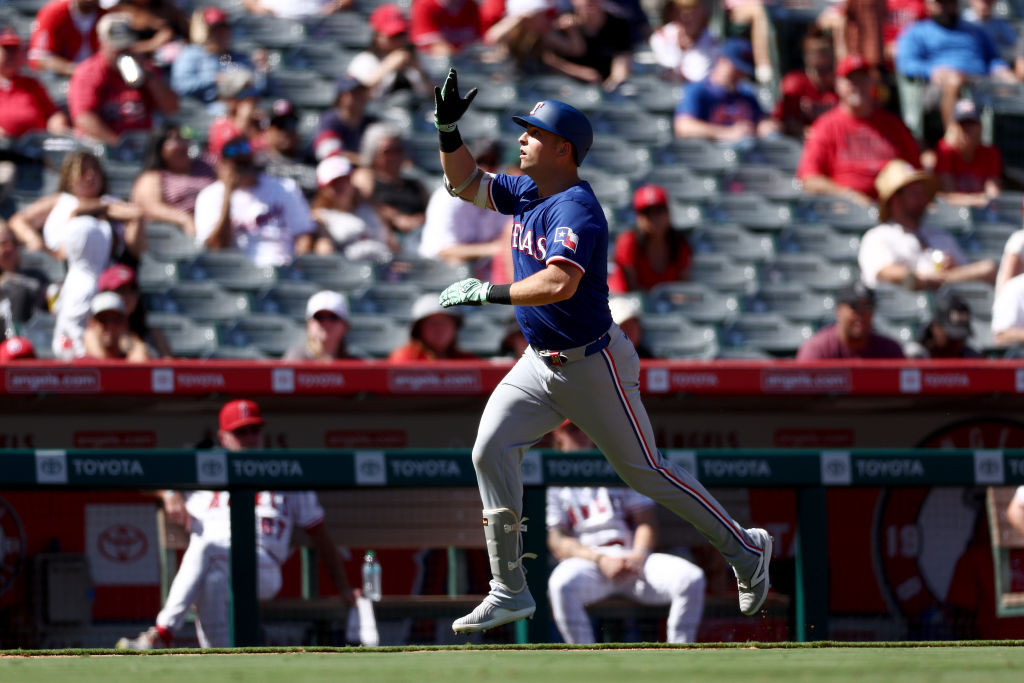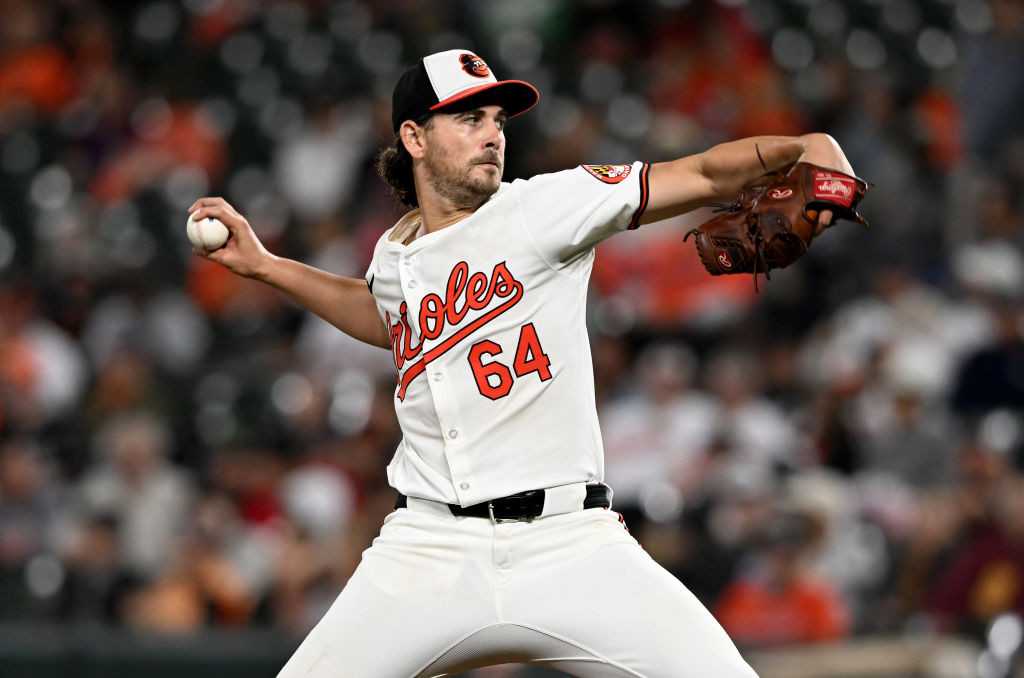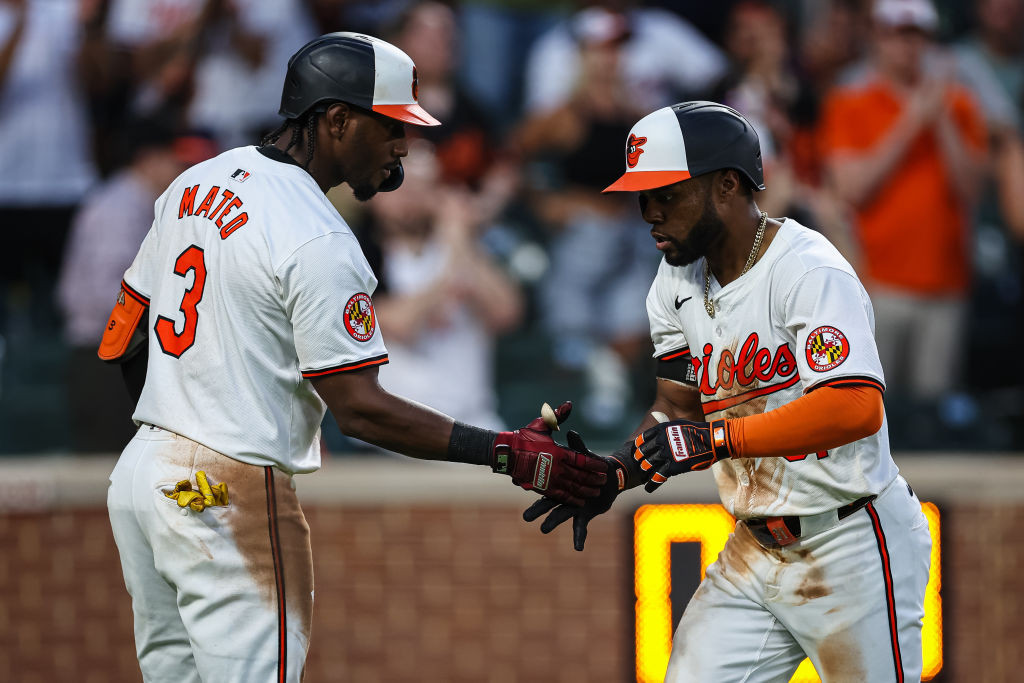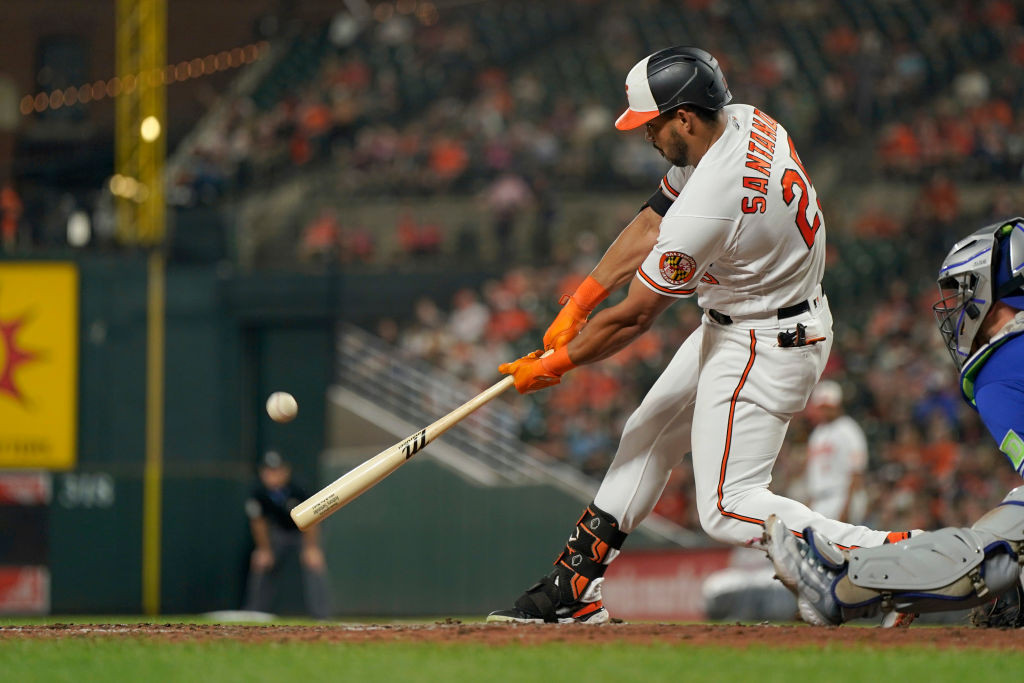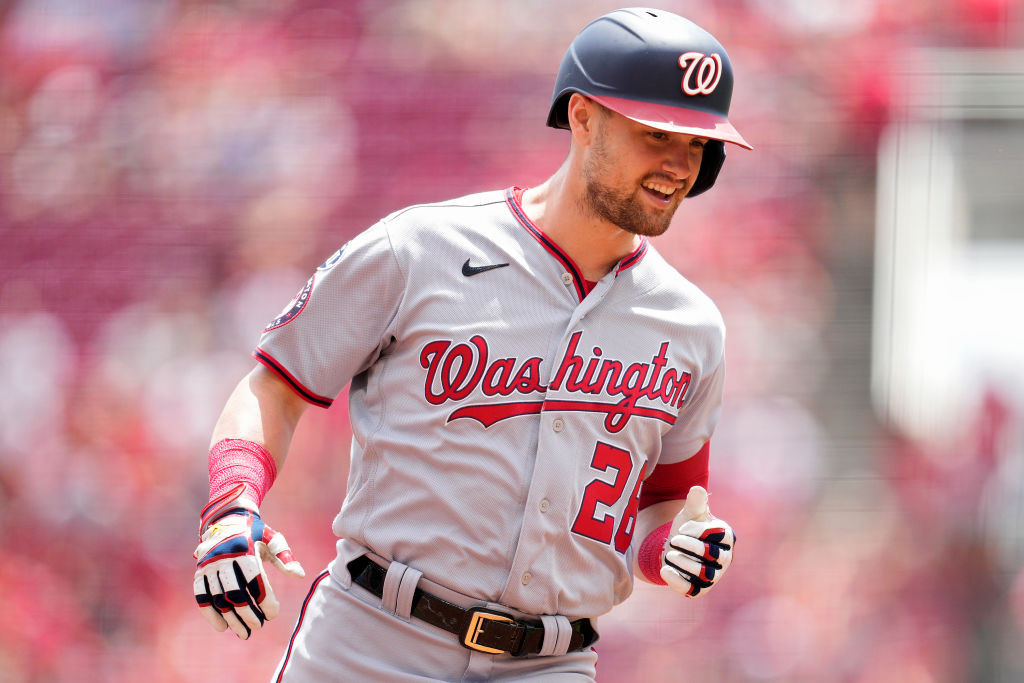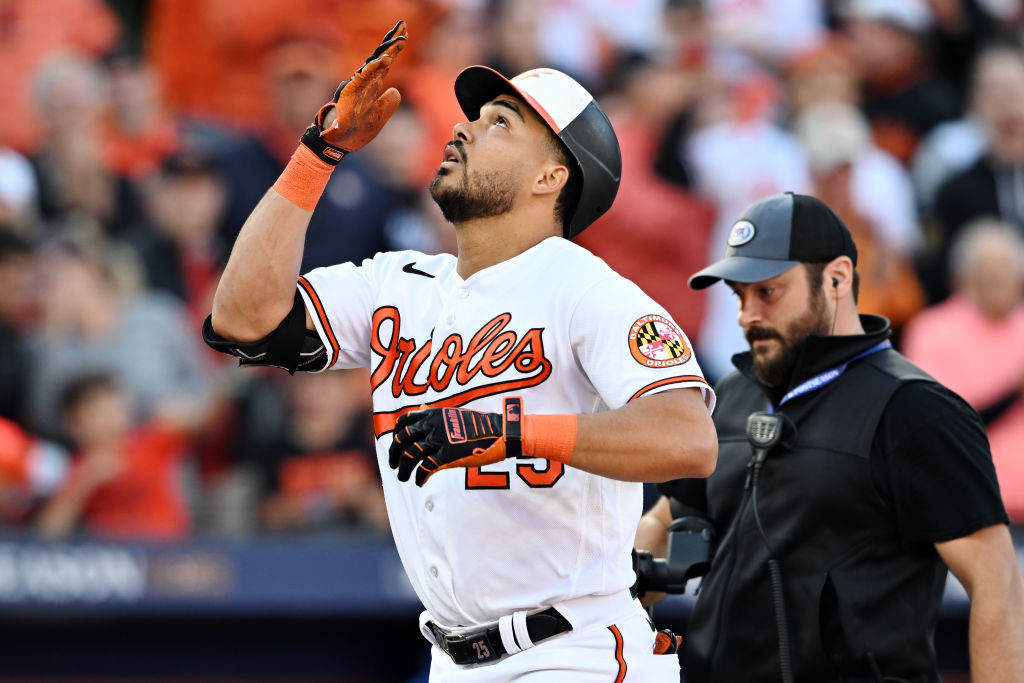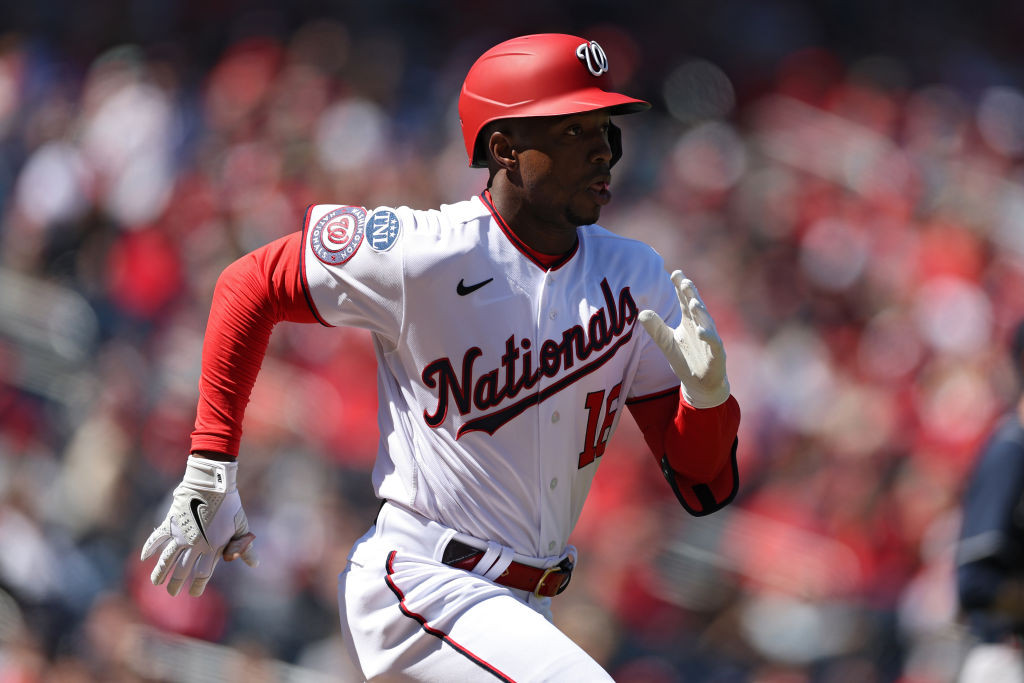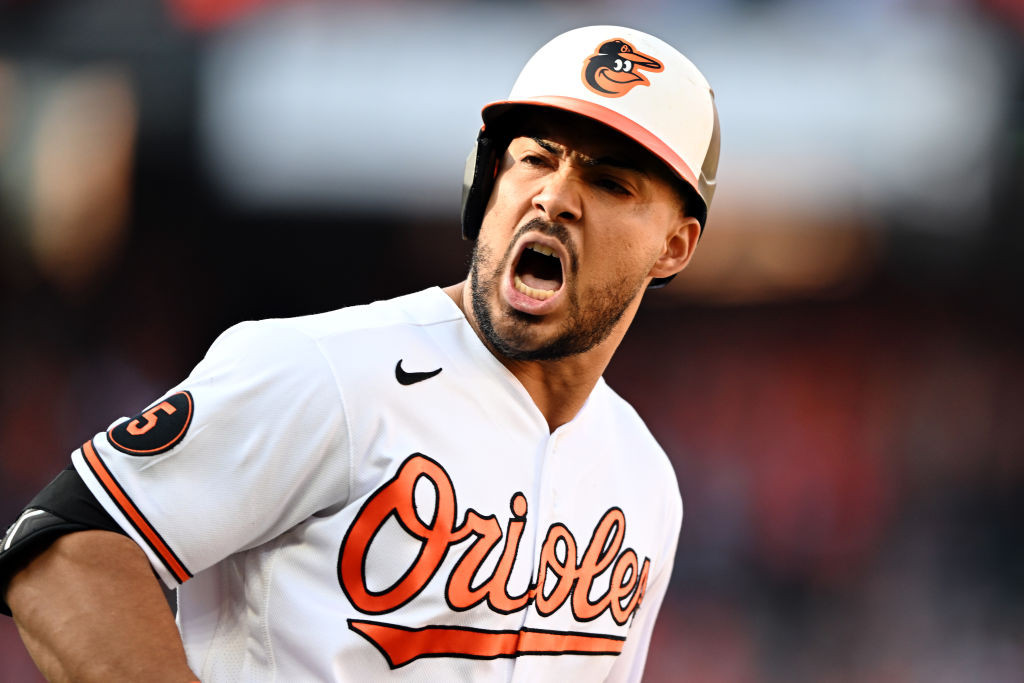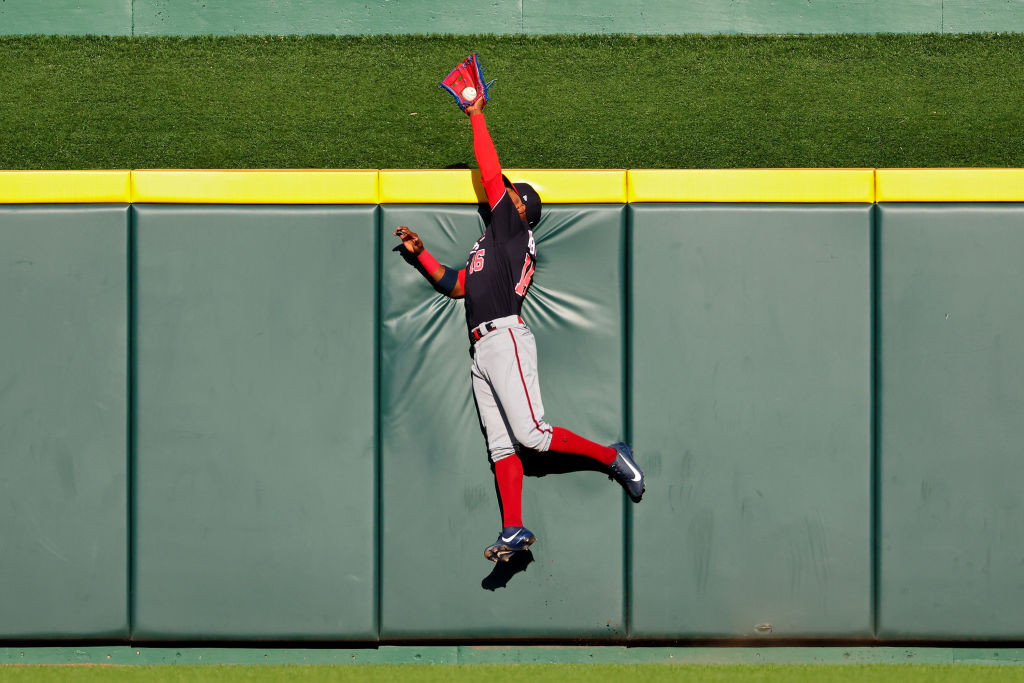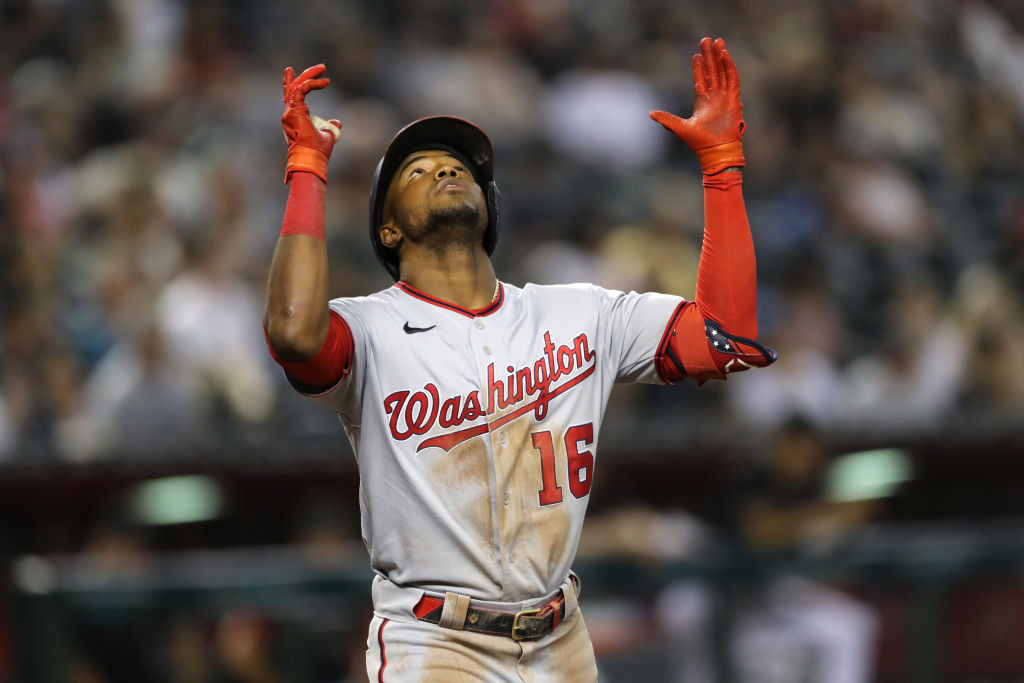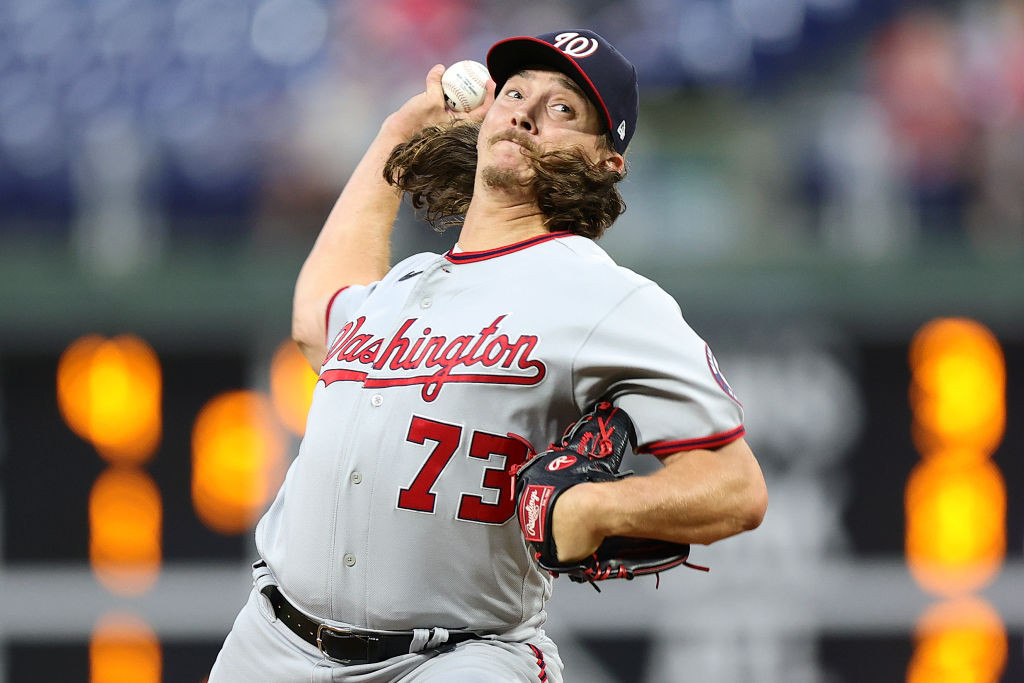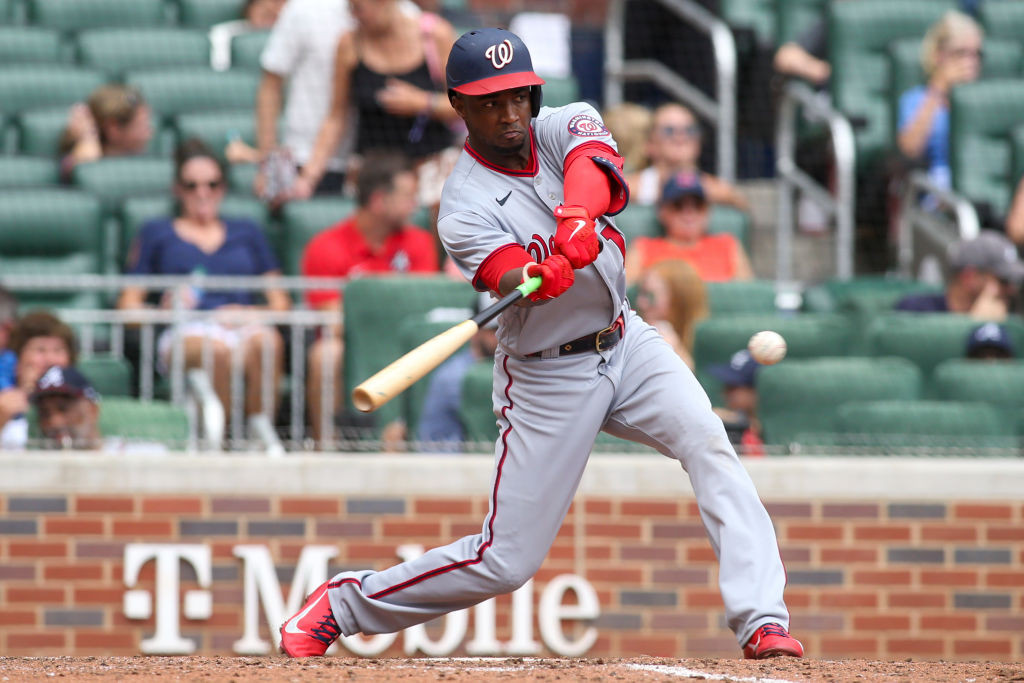The initial reaction for many to the Nationals and Nathaniel Lowe filing for arbitration Thursday night was one of incredulity. This is really how they’re going to treat their biggest offseason acquisition, by haggling over money and taking him to court?
It’s admittedly not a great look when a team can’t work out a contract with any player and has to rely on the arbitration process to determine that player’s salary. Even more so when that player is brand new and doesn’t already have some kind of established relationship with the club.
But let’s not get too worked up about this. It may not look great on the surface, but it’s not the end of the world. It’s actually not that uncommon. And there’s a decent chance this saga doesn’t even end with a hearing.
The Nationals had six arbitration-eligible players they needed to work out 2025 salaries with before Thursday’s deadline. They managed to settle on deals with five of the six: Luis García Jr., MacKenzie Gore, Josiah Gray, Derek Law and Riley Adams. They could not get a deal done with Lowe, the 29-year-old first baseman acquired from the Rangers last month for reliever Robert Garcia.
So the two sides had to formally file for arbitration, with Lowe seeking a salary of $11.1 million and the Nats countering with an offer of $10.3 million, according to MLB.com. A hearing will be set for early February, with a three-judge panel ultimately deciding which side wins.
The Orioles must reach agreements with their unsigned arbitration-eligible players later today or exchange salary figures. Hearings will be held between Jan. 27 and Feb. 14.
A panel will choose one of the two figures. There are no compromises.
We’ve learned that there are exceptions to the club’s file-and-go philosophy.
Corner infielder Emmanuel Rivera settled at $1 million to leave the Orioles with 11 unsigned players. Here’s a reminder:
Dean Kremer
Major League Baseball has reached another important deadline today, with teams required to offer contracts to arbitration-eligible players. It’s known as the “non-tender” date. Good for baseball, bad for steakhouse chefs.
The Orioles went a surprising 17-for-17 last year and they have 13 players to consider this afternoon. As usual, there are the slam dunks and the shaky on the perimeters.
The list stood at 16 before the Orioles did some whittling, including the decision to pick up left-handed reliever Cionel Pérez’s $2.2 million option for 2025. They could have declined it and negotiated a new deal.
Pitchers Matt Bowman and Burch Smith elected free agency rather than outright assignments.
At the risk of being wrong again, which never stops me from trying, I’ll predict that the Orioles go 13-for-13.
Take it for what it's worth, but oddsmakers are anticipating the Orioles take a big step back in their win total for the 2024 season. BetOnline.ag this week put the over-under for Orioles wins at 87.5.
The Orioles won 101 games last year, blowing by preseason over-under totals in the 76- and 77-win range predicted by multiple outlets.
So this is a projection for a lot more than a year ago, but still many fewer than the actual total from the 2023 season.
Going by current listed totals, BetOnline.ag has the Yankees with the most wins in the American League East in 2024, followed by Baltimore, Toronto, Tampa Bay and Boston.
And while Boston would finish last in this listing, its 80.5 total is much more than the number of wins they forecast for other projected last-place clubs, including the Chicago White Sox (63.5), Oakland Athletics (57.5), Washington Nationals (65.5), Pittsburgh Pirates (72.5) and Colorado Rockies (60.5).
For the first time in a long time, there will be Nationals news today. Not news about the signing of a prominent free agent (unless Mike Rizzo has a surprise up his sleeve). But news about the status of four players who must either agree to 2024 salaries today or file for arbitration.
The four players on the clock today: Lane Thomas, Kyle Finnegan, Luis García and Hunter Harvey.
What’s actually happening today? Major League Baseball requires all players who are arbitration-eligible (between three and six years of big-league service time, plus a percentage of the most experienced players with less than three years) to negotiate and ultimately agree to their one-year salary figures. Anyone who doesn’t real a deal on their own must then submit a formal salary request, with the team also submitting its formal contract offer, and then an arbitration hearing is scheduled for February before a three-person panel which decides which offer wins.
The all-important caveat: Even if players and teams file for arbitration today, they’re still free to negotiate a deal on their own over the next month. And more often than not, those cases are settled before ever reaching the arbitration panel.
The Nationals actually entered the offseason with eight arbitration-eligible players. But Dominic Smith and Michael Chavis each was cut loose months ago, and Victor Robles ($2.65 million) and Tanner Rainey ($1.5 million) already agreed to their 2024 salaries back in November.
The string of slow-to-nonexistent news days is about to get snipped with the Orioles approaching the deadline to sign their arbitration-eligible players or exchange salary figures.
This counts as actual news, right? Or maybe it depends on your standards. After all, they're under team control no matter the outcome. But at least it's more than a minor league signing.
Deals need to get done by 8 p.m. tonight or risk hearings between Jan. 29 and Feb. 16 in Scottsdale, Ariz.
Yes, the deadline is tonight despite the 1,472 articles in Google searches that say Friday. It was changed.
One more time, I hope, are the 13 impacted players and MLBTradeRumors’ projected raises:
The Nationals have declined their 2024 club option on Victor Robles, but that doesn’t necessarily mean an end to the outfielder’s time with the organization.
In choosing not to pick up their $3.3 million option for Robles, the Nats still retain control of the player, who has accrued only five years and 33 days of big league service time. That makes him eligible for arbitration once again this winter before he can finally become a free agent.
The Nationals and Robles could negotiate and agree to terms on a 2024 salary, one that most likely would be worth more than the $2.325 million he made this year but less than the $3.3 million option they agreed last offseason. If they can’t come to terms by January, they could file competing figures for arbitration and await the ruling of a three-judge panel.
Or, the Nats still could decide to cut ties with Robles and not tender him a contract before the league-wide Nov. 17 deadline, making him a free agent now.
It’s not entirely clear which direction the team will go after another disappointing season from Robles, though this time for different reasons from the past.
According to the Orioles postseason media guide there are seven hitters in the American League the last two years that have produced 250+ hits, 150+ runs, 100+ walks, and 60+ homers.
The list includes Houston’s Yordan Álvarez, Boston’s Rafael Devers, Adolis García and Corey Seager of Texas, the New York Yankees Aaron Judge, Shohei Ohtani of the Los Angeles and one other player. The Orioles’ Anthony Santander. That is one solid group of hitters he is keeping company with.
For me being on that list and for other good reasons, makes it a no brainer that Santander is offered salary arbitration by the Orioles this winter, as his salary is due to rise from $7.4 million this year to $12.7 million next season via MLBTradeRumors.com projections.
There may have been a time a few years ago that Santander would have priced himself out of Baltimore at that dollar amount. But barring something that would be a real stunner, this is not that time. They still need this guy.
There may have been a time when a player just one year before free agency – as Santander is now – might look to be traded by the club. Get something for him before he can leave, is that thinking. But don’t they need this bat right now? Even, in a worst-case scenario and he did leave via free agency after the 2024 season, don’t the Orioles badly need Santander to keep winning next year? To make another postseason run?
Matt Swartz at MLBTradeRumors.com created a model to project salaries for arbitration-eligible players, which the site has published for 13 years. Is it 100 percent accurate? Of course not, because that would be impossible. But he nails some and comes darn close with others.
That's to be expected with an algorithm that, as the site describes it, “looks at the player’s playing time, position, role, and performance statistics while accounting for inflation.” We’re also warned against using it as a “scorecard.” But does that stop us?
Of course not.
Anyway, the Orioles have an astounding 16 players eligible for arbitration, tied with the Rays and Mets for second most behind the Yankees’ 17. My unscientific projection is there’s zero chance that the club retains all of them.
Anthony Santander’s salary could jump from $7.4 million to $12.7 million. Starter Kyle Gibson led the club this season at $10 million, since the Yankees carried the bulk of Aaron Hicks’ salary and the Mets handled the bulk of James McCann’s.
For the second straight year, the Nationals and Victor Robles filed for arbitration. And for the second straight year, they ultimately avoided an actual arbitration hearing, agreeing to a salary figure before reaching the courtroom.
The Nats announced today they settled with Robles on a one-year contract for 2023, while also agreeing to a club option for 2024.
The deal establishes a $2.325 million salary for Robles this season, according to the Associated Press, only slightly more than the $2.3 million the team was offering him through arbitration. Robles had been seeking $2.6 million, with a hearing before a three-judge panel set to take place in the coming days.
This whole process, of course, was quite familiar to both parties. One year ago, Robles and the Nationals filed for arbitration, the player seeking $2.1 million while the team offered $1.6 million. They wound up settling at $1.65 million before going to a hearing.
Robles proceeded to labor through another frustrating season, batting a mere .224 with six homers, 33 RBIs, a .273 on-base percentage and career-worst .584 OPS across 407 plate appearances. He did rediscover his top defensive form in center field, finishing with 12 Defensive Runs Saved while being named a finalist for the Gold Glove Award.
Less than one year ago, Victor Robles and the Nationals were unable to come to terms on a salary figure for the 2022 season, so the two sides filed for arbitration. This was after the lockout-delayed spring training had begun, creating a very narrow window for negotiations and for a hearing to be scheduled.
The disparity between the two sides’ official arbitration filings ($500,000) wasn’t nothing. Robles was seeking $2.1 million, while the Nats countered at $1.6 million. He was the team’s only arbitration-eligible player who didn’t sign before the deadline.
But as so often is the case in these matters, they did ultimately agree to a deal before ever setting foot in an arbitration hearing. Twelve days later, just as camp was about to wrap up, Robles and the Nationals agreed to a one-year, $1.65 million contract.
That’s right, Robles accepted an amount that was only $50,000 greater than the team’s official arbitration offer.
It was with that prior negotiation in mind that the two sides once again were unable to work out a deal prior to this year’s deadline, which came Friday night. So once again, Robles was the Nationals’ lone arbitration-eligible player who did not come to terms in time and was forced to submit a formal offer to the league.
It's deadline day for all major leaguers with more than three years and fewer than six years of service time to agree to terms with their clubs on 2023 salaries or else file for arbitration. The Nationals have six unsigned players facing today's deadline: Victor Robles, Kyle Finnegan, Lane Thomas, Carl Edwards Jr., Victor Arano and Hunter Harvey.
Bobby Blanco and I will be keeping track of any deals that come together over the course of the day, so check back for updates along the way ...
* Harvey is the first player to sign. The Nationals announced the right-hander has agreed to terms on his 2023 contract, avoiding arbitration. We don't have numbers yet, but MLB Trade Rumors projected a $1 million salary for him in his first year of arbitration eligibility.
Harvey, 28, had something of a breakthrough season out of the Nats bullpen after years of injuries with the Orioles. He did miss several months with an elbow strain, but he returned strong and finished the season healthy, with a 2.52 ERA and 1.144 WHIP, striking out 45 batters in 39 1/3 innings. He should enter the season at worst as the Nationals' seventh inning reliever, setting up Edwards and Finnegan.
* Next up is Edwards, who has avoided arbitration with his own one-year deal. The Washington Post reports he'll earn $2.25 million, which is a nice bump from his league minimum salary last season after he joined the club on a minor league deal. The 31-year-old right-hander was a revelation, producing a 2.76 ERA and 1.226 WHIP over 57 appearances, his best season since 2018 with the Cubs.
It’s another deadline day across Major League Baseball, this one for all arbitration-eligible players to either agree to terms on their 2023 salaries or exchange figures with their clubs and file for an arbitration hearing.
How does that work? This applies only to players with more than three years but fewer than six years of big league service time. (There are also a group of players with fewer than three years who qualify early for arbitration, the so-called “Super Two” players, but the Nationals have nobody in that category this year.)
These players don’t have the right to become free agents yet, but they do have the right to negotiate their salaries. It’s up to them and their teams to find common ground and agree to a dollar amount. If they can’t, each side submits an offer, then a hearing is set for February, at which time a three-judge panel will pick a winner and declare the player’s salary.
A couple of things that are important to remember: 1) If a player doesn’t agree to terms today, that doesn’t mean he’s no longer under contract. He’ll still be part of the team this season, it’s just going to take a while longer to determine his salary. 2) Players and teams who don’t strike a deal today must file for arbitration, but they’re still free to continue negotiating up until the hearing and could still work something out before ever appearing before the panel. This is actually quite common.
So, which players does this apply to? The Nationals have 10 players with three to six years of service time, but four of them have already agreed to 2023 salaries, either because they were cut loose by other organizations and signed as free agents (Jeimer Candelario, $5 million; Dominic Smith, $2 million) or because they negotiated deals prior to today’s deadline (Tanner Rainey, $1.5 million; Ildemaro Vargas, $975,000).




-1745819772711.png)
